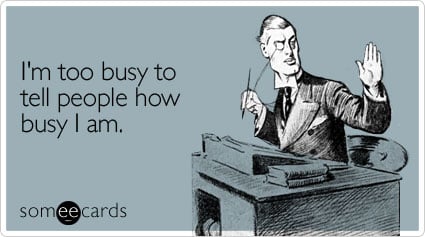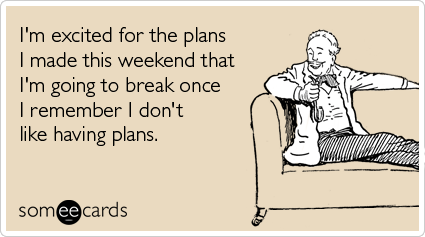Cognitive Behavioural Therapy is a term used to describe psychotherapeutic interventions that aim to reduce psychological distress and maladaptive behaviour by altering cognitive process.
 |
| Say what??? |
Basically, it is the relationship between our cognitions (what we think), affect (how we feel), and our behaviour (what we do). It is the understanding of how events are interpreted, with identifying and changing the distortions or deficits that occur in cognitive processing.
 For example, all of that wordy mumbo jumbo can be seen by a child who suffers from an anxiety disorder, they often misperceive ambiguous events as threatening ones. Similarly, children who tend to act aggressively will perceive a nonthreatening event as a threatening one.
For example, all of that wordy mumbo jumbo can be seen by a child who suffers from an anxiety disorder, they often misperceive ambiguous events as threatening ones. Similarly, children who tend to act aggressively will perceive a nonthreatening event as a threatening one.Interventions address cognitive distortions and are concerned with increasing a child’s awareness of dysfunctional/ irrational thoughts, beliefs and schemas, and with facilitating their understanding of the effects of these upon behaviour and emotion.
Again, in layman’s terms, that is to say point out to the child their goofy way of thinking, and how it is directly, negatively impacting their thoughts and emotions. The whole point of CBT is to increase self-awareness. CBT encourages self questioning and challenging one’s assumptions and beliefs.
This sums it up!
I hope I’m not boring anyone with my wordy, scholastic blog post. Keep reading! It gets better!
There was a man, Albert Ellis (stud), who came up with eleven core beliefs that are the most unhelpful towards our emotions and behaviour.
*A core belief is how we see ourselves, how we judge what we do, and how we view the future.*
- I must do everything well or I am incompetent.
- I must damn others if they do not treat me well.
- I must damn life if things do not go well.
- I must control events and people because they control how I feel.
- I must worry about anything fearful or risky
- I must avoid responsibilities and problems in order to be comfortable and/or content.
- I must depend on others or my life and/or my self will fall apart.
- I must forever be controlled by my past, and I must continue to be strongly affected by anything that once strongly affected me.
- I must damn other’s problems and be disturbed by them.
- I must damn life if I cannot find the perfect answers to human problems.
Our automatic thoughts echo our core beliefs; therefore, we definitely do not want one of the above eleven to be ingrained into our minds.
How can we use CBT to engage youth?
• Direct questions
• Indirectly (for example, via puppetry)
• Indirectly (for example, via puppetry)
• Through the thoughts of someone else
• Cartoon thought bubbles
• Acknowledge their self-centeredness
 |
| What do you imagine this girl saying? I bet it's different from everyone else! |
• Promote collaboration
• Socratic questions (get right to the point)
• Challenge dichotomous thinking
Give the children tasks to do at home! Try providing books that offer a life lesson relevant to their personality, self help activities, or even journaling!
Negative Ways of Thinking
 Negative Glasses: Also referred to as a Negative Nancy! This type of thinking is fairly pessimistic, these people always see the glass half full, and have a huge impact on the moods of people around them.
Negative Glasses: Also referred to as a Negative Nancy! This type of thinking is fairly pessimistic, these people always see the glass half full, and have a huge impact on the moods of people around them.Blowing Up: I am sure we all know a Drama Queen or two. This personality often exaggerates events that have happened and believe them to be the worst thing that could possibly happen to them.
Mind Reader: May also be considered slightly paranoid. These thinkers can figure out exactly what negative thoughts someone else has of them- just by looking at their face!
Fortune Tellers: This type of thinking may stop those from acting, as they predict the negative outcome and choose to avoid it altogether.
How to Control Negative Thoughts
Positive Self-Talk: Reverse the thoughts you are experiencing and turn them into encouragement.
Test Them: Confront your negative thoughts and find out if you are right about them directly from the source!
Throw Them Away: Completely disregard your negative thoughts and instead think optimistic!
Repressed emotions are when we have an experience that is so painful or difficult to cope with that we dismiss it altogether. Those feelings remain buried until we bring them up and deal with him properly. If they remain buried long term, they often cause physical illness!
How We Avoid Emotions:
• Pretending it didn’t happen
• Drinking alcohol
• Prescription/ Recreational drug use
• Excessive exercising
• Excessive sex
• Excessive work
• Only taking part in superficial conversations
Symptoms of a Repressed Emotion:
• Fatigue
• Depression
• Within your relationship you only focus on your child/finances and not yourself
• Troubles personal relationships
• Lack of ambition
• Laughing on the outside while crying on the inside
After all that is said and done, how can we control our feelings?
Through relaxation strategies and activities, physical activities, and prevention plans.
How exactly do we go about changing our crazy behaviour?
We take small steps, face our fears, and dump the bad habits.
Trust the Big Bang Theory to pull it all together. ;)
BOOM









No comments:
Post a Comment